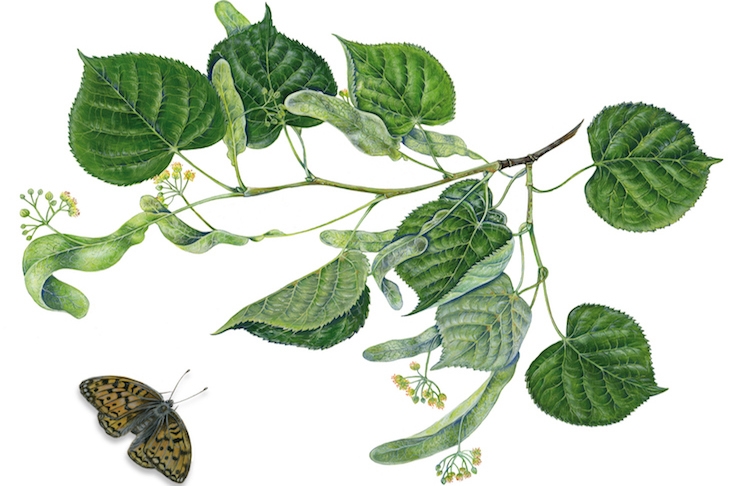The publication of César Aira’s The Lime Tree in Chris Andrews’s assured translation is a reminder that much of the Argentinian writer’s massive literary output — now more than 70 books — remains inaccessible in English. In this novella, which teases readers with suggestions of the autobiographical, Aira has one eye on his country’s past and the social effects of Juan Perón’s regime, and the other on the literary legacies of Proust. For Aira’s unnamed narrator, it is not the taste of lime blossom tea that spurs his fluid reminiscences, but a particular tree itself, ‘grown to an enormous size’ and central to the small-town landscape of his childhood in Coronel Pringles, where Aira himself was born. Here the narrator’s father, a hot-headed electrician, collects the tree’s blossoms each year to make
a calming tea.
The narrator is unsettled, however, by the suspicion that his memories, which leap back and forth between the Perónist years and their aftermath, may be nothing more than fabrications. Since his family ‘never spoke of the past’, these doubts cannot be assuaged, and language itself becomes a barrier to reflection. Following the 1955 Revolución Libertadora, the new regime prohibited the word ‘Perón’, a decree obeyed even within the sprawling abandoned inn on the edge of town where the boy and his parents inhabit a single room.
Although this is a family without books, the power of literature nonetheless asserts itself. A radio version of Federico García Lorca’s Yerma inspires the narrator’s mother to an explosion of anti-Perónist invective, while his father, a loyal supporter of the president, struggles to know how to respond to the play, concluding that since it runs so radically ‘against the current’ of ordinary society, the writer must have ‘to live life in reverse’.
Even when reflecting on the past, Aira himself writes — now famously — in a state of propulsive forward movement. Plot and chronology are subordinated to his unbroken narrative flow, leading readers along an affecting exploration of the strange, darting paths of thought and memory, which suggest, in their looping retrospection, something very like a life in reverse. Given the Proustian preoccupations, it is little surprise when we find ourselves, in the end, circling back to the narrator’s father collecting blossoms from that monstrous lime.
Although comprised of what can seem like individually minor creations, Aira’s project is no less ambitious than Proust’s, and for those of his fans who cannot read his work in Spanish, the arrival of each new title is a bittersweet occasion. It has taken 14 years for this book to reach us in English, and that is too long to wait. We want more, and we want it yesterday.






Comments